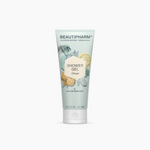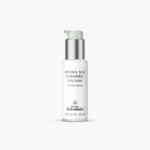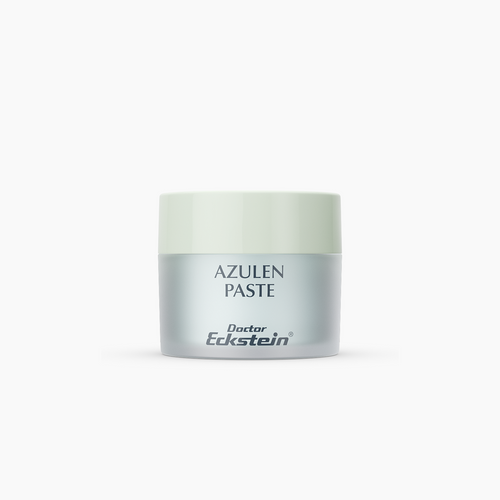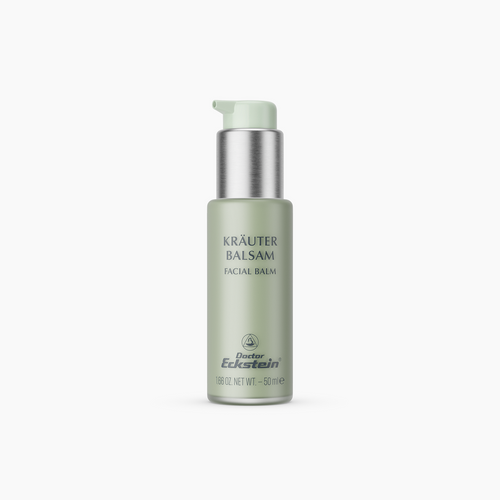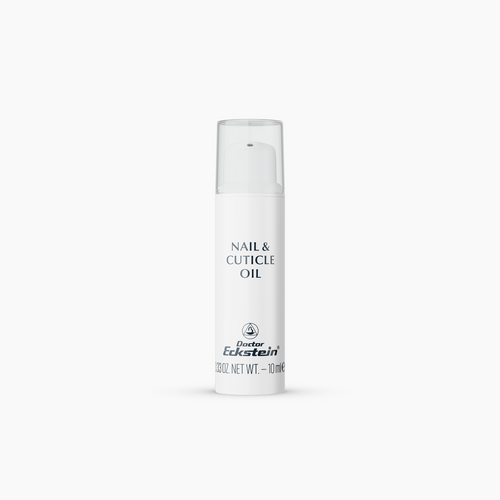Skin culture - a nice term, don't you think? It goes back to the German doctor and social hygienist Christoph Wilhelm Hufeland, who worked around 1800.
More than 200 years ago, Hufeland wanted to make it clear how important hygiene and skincare are not only for health but also for people's well-being and quality of life. I came across this in the textbook for beauticians that my grandfather Dr. R. A. Eckstein published in 1971. It says „BioKosmetik – Aus Forschung und Praxis“ and there is a section in it that inspired me to write this blog post. My grandfather wrote there: Cosmetic care “wants to maintain the health of the skin, protect it from damage by environmental influences, and eliminate and prevent aesthetically disturbing blemishes and skin symptoms. It is "skin culture" [...]. "1
Who contributes to the preservation of this culture and how we can all benefit from it, that is what this article is about.
Skincare experts
People who suffer from massive skin problems, such as acne, are usually one step ahead of others. You have learned the importance of trusting experts for the benefit of your skin. When it comes to clinical pictures, the first point of contact is of course the dermatologist, because medical help is required. Many of those affected also rely on the know-how of beauticians. And that's good. Trained beauticians have a great deal of expertise in the cosmetic treatment of the skin - regardless of the condition of the skin. To continue to spin my grandfather's thoughts freely, they belong to the most important guardians of our skin culture by profession. And hardly anyone can better mediate between us and the worries and needs of our skin than they can.
The language of the skin
The skin speaks its own language. As long as it has nothing to say to us, it is just beautiful and uncomplicated, we tick off the topic, it may not even have much on our screen.
Only when it pinches and tweaks, a few scales here, a few pimples, a few red spots, the skin tightens, when the skin feels uncomfortable, do we prick up our ears. But what the hell is the skin telling us?
A little internet research doesn't hurt now. So you, dear readers, may have landed here in this blog post. This is the first step and of course, I am pleased. And if you look around not only in my blog but also on the website of our family business Doctor Eckstein®, you will find helpful information, for example, to ► determine your skin type. Once you have understood what makes your skin tick, you can react much more effectively to your skin's call for help - namely with the right care products and the right care routine. But there is still a better way.

Put the happiness of your skin in professional hands
However, this does not mean that you should only take action after the skin is out of whack. Because even if your skin is beautiful and radiant, you want to keep this condition as long as possible. As a skincare expert, I, therefore, advise you: put the happiness of your skin in the hands of professionals. Go to the beautician - preferably regularly. Because a visit to the cosmetic institute is not only for treatment but also for prevention. You can read immediately afterward why a visit to the beautician has a lasting positive influence on your well-being and what you should pay attention to.
Skin culture 2.0
Make use of the experience and expertise of experts for whom skincare is a calling. You should know that:
• With care products that are not intended for your skin condition, you can damage your skin sooner or later. This is why a skin analysis by a professional is so valuable. It is the prerequisite for every cosmetic treatment. Based on this analysis, you can then rely on the right care products at home and protect your skin from incorrect care. The analysis is often about nuances that cannot easily be mapped within the division into skin types. So if you want to be on the safe side, have your skin condition assessed face to face by a professional in a personal interview.
• Cosmetic professionals can use special products for the care and treatment of your skin, which due to their complex effects may only be used by trained hands, but which achieve more effective results.
• A visit to the beautician always has a psychosocial component: you escape everyday life, someone else takes care that we are well and pays us attention. This is wellness for body, mind, and soul, something that is often neglected in our daily life.
• If you go to the beautician with skin problems, be patient and see the visit to the cosmetic institute as part of your skincare routine. Usually, there is a noticeable and visible improvement after the first visit, but to get the skin back into its natural balance, it takes more than just professional treatment.
• The condition of your skin is subject to changes, for example, triggered by environmental influences or simply by the natural aging process. The first signs often go unnoticed. Cosmetic professionals, on the other hand, recognize changes in your skin's complexion immediately and give you valuable tips on how to react to these changes for the benefit of your skin. Of course, this requires regular visits to a cosmetic institute.
• If you are looking for a suitable institute, look out for a training certificate because the profession of the beautician is not protected by law. When you have completed specialist training, you will recognize the professional in whose hands you can confidently place your skin.
• Are you thinking about trying out treatment in a beauty salon? Quite wonderful! They can only benefit and also help to ensure that our skin culture remains what it is: an important component in maintaining our health and wellbeing.
Wishing you happy skin,
Dr. Verena Eckstein, ND
Proof of quotation: 1R.A. Eckstein: BioKosmetik – Aus Forschung und Praxis, 7. completely revised edition. Oberasbach: Eckstein, 2005, page 26
Disclaimer: The purpose of this blog is to share interesting scientific literature and skin care tips. This blog is not intended to provide diagnosis, treatment or medical advice. Content provided on this blog is for informational purposes only. Please consult with a physician or other healthcare professional regarding any medical or health related diagnosis or treatment options. Information on this blog should not be considered as a substitute for advice from a healthcare professional. The statements made about specific products are not to diagnose, treat, cure or prevent disease.
